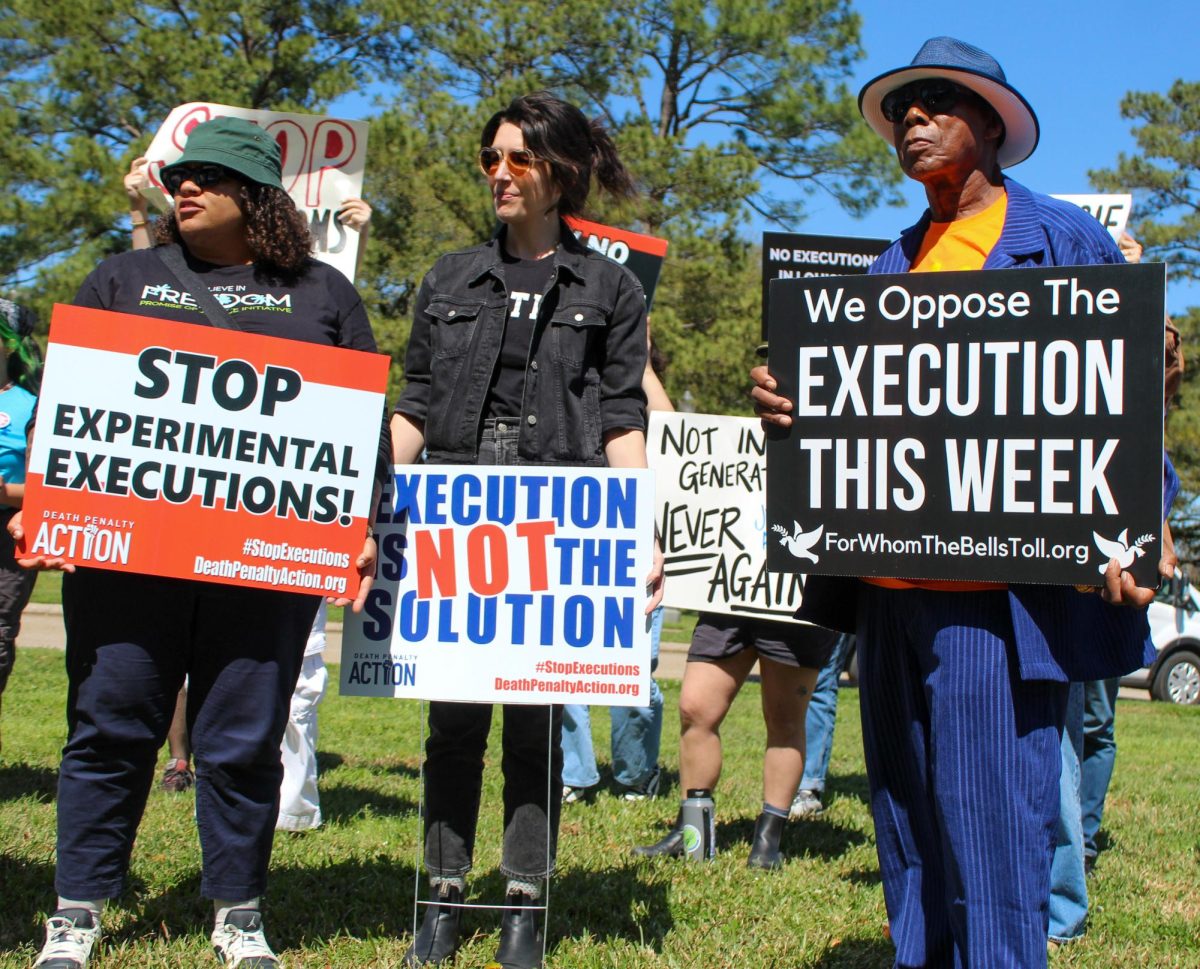New research shows that the majority of death sentences in Louisiana involve crimes involving black men against white women.
Frank Baumgartner, political science professor at University of North Carolina at Chapel Hill, and Tim Lyman, a documentation specialist in New Orleans, published their research that shows extreme inconsistencies between the crimes that are punished and those that are committed.
According to their research, homicides of white women are 48 times more likely to result in an execution than those involving black male victims. However, it is statistically less likely for women to be the victims of any homicides, according to Baumgartner.
“The shocking thing about this is that the majority of all homicide victims in Louisiana are black males, but it is almost statistically impossible to be executed for such a crime,” Baumgartner said.
According to Baumgartner, there are no cases in the entire history of Louisiana where a white person was executed for killing a black male.
Sidney Garmon, the executive director of the Louisiana Coalition for Alternatives for the Death Penalty, said the reasons for these racial disparities is most likely rooted in the state’s history.
“As with many southern states, Louisiana’s executions are rooted in slavery. Caddo Parish, one of the three largest parishes in the state, was once host to the capital of the Confederacy and was often referred to as ‘Bloody Caddo’ for the abhorrent number of lynchings that occurred in the decade following the civil war,” Garmon said.
Andrea Armstrong, law professor at Loyola University, said this research reflects larger issues in the criminal justice system.
“This research shows that Louisiana’s death penalty system is plagued by vast racial and gender disparities,” Armstrong said.
In the 50 years since the reforms made to the death penalty, there have been roughly 1,400 executions across the country. Only nine of the 1,400 executed were white people who had committed a crime against black men, according to Baumgartner.
“The numbers are so stark that at some point you have to say: maybe we simply need to recognize that we cannot perfect the mechanism that is the death penalty,” Baumgartner said.
Garmon said that a solution would be to replace the death penalty with a life sentence without parole.
“Our criminal justice system promises to treat all people equally, regardless of where they live or the color of their skin, and Louisiana does little to uphold this promise of justice. A system this fraught with bias proves to me that the death penalty is broken beyond repair,” Garmon said.
According to Armstrong, this research should raise questions about the future of capital punishment.
“Lawmakers and members of the public should be troubled by the fact that skin color is playing such a significant role in how the state determines who should live and who should die. Louisiana should question whether it wants to stand behind punishment that is so fraught with bias,” Armstrong said.








